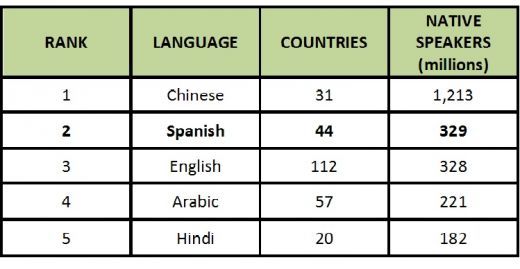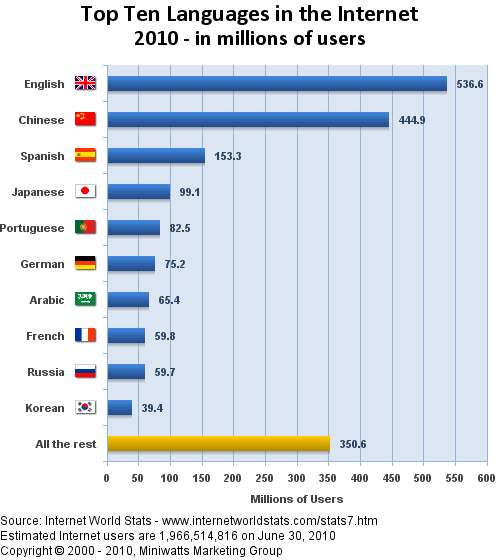Is pentalingual a person if he/she speaks: Spanish, Portuguese, Italian, Galician and Catalan? I think that due to the common vocabulary the person would be bilingual.
Linguists generally agree that Spanish and Portuguese are two distinct languages. They both have formal, standard forms, established in textbooks and enforced both academically and by common usage. Although it is easy for a speaker of one to
learn the other, they cannot
understand each other completely without considerable time and effort, so they are not considered dialects of one language. The fact that many people in Portugal and Brazil can, indeed, understand Spanish rather well is merely the result of being surrounded by a larger culture using the other language, so they hear it all the time. And that will surely change in South America now that Brazil is the world's 6th largest economy!
As for Catalan and Galician, we're getting into an issue that is perhaps more political than linguistic. When I was in Valencia in 1973 (which is not quite in Cataluña but just across the border), my friends insisted that their language is considerably different from Spanish, yet after a few hours in their home I could understand it almost as well as Spanish. But as I said, there are political ramifications. Just now, the Catalonians are lobbying for independence from Spain.
As for Italian, I'd have to say no. It is much more difficult for an Italian to understand a Spaniard or a Portuguese than for the two of them to understand each other. It's not just the grammar and phonetics, which usually "click" in your head after a few hours, days or weeks, but a much greater difference in both vocabulary and syntax.
What about other groups of similar languages?
Czech and Slovak are about as similar as Spanish and Portuguese. Even Czechs and Poles can begin understanding each other after a few weeks of exposure.
The languages of the former Yugoslavia are very similar. Serbo-Croatian, Slovene and Macedonian could be called dialects of a "Yugoslavian" language, except for the obvious political problems.
The entire Slavic language group has not had long to diverge so Russians, Ukrainians and Belarusans can usually understand each other after an hour or two, even if they won't admit it. For that matter, put a Czech or a Pole in Moscow or Sofia, and within a month or two he'll be talking to those people.
The Scandinavian languages of the Germanic group are very closely related and similar, arguably differing primarily in phonetics--although these phonetic differences are enormous. Obviously most Danes and Norwegians can understand Swedish because they probably hear it every day, but for a Swede to begin understanding one of the other languages might require sitting in a bar for a few hours and simply getting used to the (to him) odd accents and cadences. Icelandic is also a Scandinavian language but it has changed little over the centuries and is still very close to Old Norse, so I doubt that the other Scandinavians could easily understand it.
Dutch and Afrikaans--another political issue. They can understand each other with a little patience, but they won't admit it. Dutch and Flemish, on the other hand... those are two dialects of one language (and not even terribly different dialects!), but the Flemings want independence from Belgium and a major plank in their platform is their "unique" language.
Sicilian may have been distinctly different from Italian 300 years ago, but since the unification of the country (not to mention the unification of Europe) the Sicilian language has been slowly changing into a quaint dialect of Italian.
Back in the dark days of communism, most Estonians could understand Finnish. The Soviets did not allow broadcasts in their own language, so they tuned in radio and TV signals from Finland, and slowly mastered their neighboring member of the Finno-Ugric family. The Finns, of course, were not exposed to Estonian so few of them are comfortable with it.
I've only covered two language families, Indo-European and (very briefly) Finn-Ugric. There are thousands of other languages in dozens of families, and I know that many of them have this same kind of relationship: not quite close enough to be called dialects, but close enough to facilitate intercomprehensibility.



